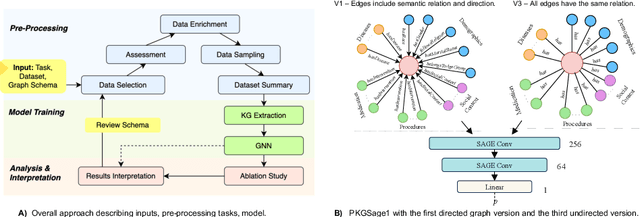Evaluating the Predictive Features of Person-Centric Knowledge Graph Embeddings: Unfolding Ablation Studies
Paper and Code
Aug 29, 2024

Developing novel predictive models with complex biomedical information is challenging due to various idiosyncrasies related to heterogeneity, standardization or sparseness of the data. We previously introduced a person-centric ontology to organize information about individual patients, and a representation learning framework to extract person-centric knowledge graphs (PKGs) and to train Graph Neural Networks (GNNs). In this paper, we propose a systematic approach to examine the results of GNN models trained with both structured and unstructured information from the MIMIC-III dataset. Through ablation studies on different clinical, demographic, and social data, we show the robustness of this approach in identifying predictive features in PKGs for the task of readmission prediction.
 Add to Chrome
Add to Chrome Add to Firefox
Add to Firefox Add to Edge
Add to Edge